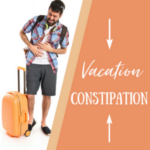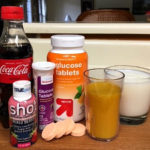Dietitian or Nutritionist, what’s the difference, (and why you should care!)?
If you’re like most people, you don’t the difference between a Registered Dietitian Nutritionist and a Nutritionist. Every day we are bombarded with celebrities, fitness gurus and entrepreneurs disguised as nutrition “experts” claiming to know exactly what and how you should eat.
Some, in order to impress you with their “qualifications” call themselves “nutritionists.” Some of these folks really are qualified, while others dispense advice that can be affirmatively harmful.
So how do you tell the difference?
A Registered Dietitian Nutritionist (RDN), also known as a Registered Dietitian (they are exactly the same) must obtain specific qualifications before they can refer to themselves as a RDN. They include:
- Complete a minimum of a bachelor’s degree in nutrition, food science, or dietetics.
- Complete an accredited internship or practice program.
- Pass a national certification exam.
- Complete continuing professional education requirements to maintain registration.
(I will never forget how proud (and relieved) I was the day when I completed all the requirements and could finally put “RDN” after my name).
Registered dietitians are usually licensed by the state in which they practice, and are strictly regulated. For instance, in Florida I am required to obtain an order from a client’s health care provider before I can provide nutrition therapy for a medical condition.
A Nutritionist is not so clearly defined, and there is no legal definition. Some nutritionists have college degrees, including advanced degrees, in nutrition science. They are knowledgeable in the field, but did not complete an internship, pass a national exam and are not required to keep up their training like an RDN. They are NOT regulated.
Unfortunately, there are a LOT of nutrition enthusiasts who have NO training or education in nutrition who call themselves nutritionists.
They often are associated with fad diets, trendy supplements or fitness programs. They may mean well, especially if they want to share something that worked for them. The danger is they don’t know what they don’t know.
For people with specific health problems tied to dietary needs, following the advice of these pseudo-professionals can be harmful. For instance, too much protein can cause further kidney damage in someone with kidney disease. It is critical to be able to distinguish the health professional from the snake-oil salesman.
So what do you do? Here are some suggestions:
ASK the person you are consulting for diet and nutrition help to list their specific qualifications. (Your yoga and fitness instructors may look great, but that does not mean their diet and nutrition programs are a good fit for you).
Evaluate the promises made. If what they are saying sounds too good to be true, it is not true!
Remember your health is everything. Don’t mess around. Consult health care professionals who are experts in their field.
As a RDN with 35 years experience, I can honestly say it is not easy to come up with nutrition plans that are individualized to people with multiple medical problems. However, I do understand how important it is to get my advice right.
I base my advice on science and evidence-based research; peer reviewed and professionally vetted. Anything less would be irresponsible.
I want all of you to get the help you need from knowledgeable experts. Nutritionists without education or training in the science of nutrition can unknowingly hurt you. Don’t let them.
Are you unsure about how to eat when you have diabetes? It can be even more confusing when you have separate issues you are also concerned about – like losing weight, and reducing your risk for heart attack and stroke. Nutrition Therapy could be just what you are looking for.
- 14Shares
14



Leave a Reply